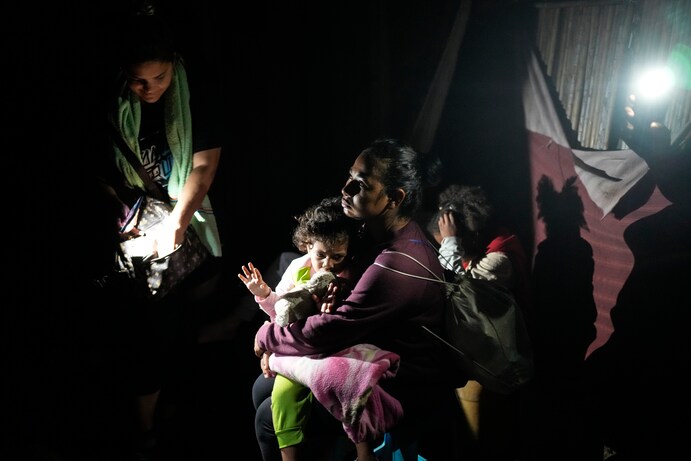The US has been ramping up its deportation efforts, forming agreements with multiple Latin American nations to process and return migrants. Recent developments show that the Trump administration has expanded its approach, using countries like Mexico, Panama, and Costa Rica as key transit points for deported individuals.
New deals have been struck with Mexico, Guatemala, El Salvador, Honduras, Costa Rica, and Panama, allowing these countries to serve as stopover points or final destinations for deported migrants. Some agreements even involve transferring Venezuelans from Guantanamo Bay to Honduras before they are sent back to Caracas. However, details of these deals remain unclear, raising concerns about potential violations of international protections for asylum seekers.
Adam Isacson of the Washington Office on Latin America (WOLA) suggests that many of these agreements were hastily arranged under pressure. Reports indicate that US Secretary of State Marco Rubio played a key role in brokering these deals, often using leverage such as suspending foreign aid or threatening economic consequences.
Unlike previous immigration policies, the current approach focuses on a broader range of deportation strategies. El Salvador, for example, has agreed to imprison deportees, while Honduras facilitates migrant transfers on its territory. These moves mark a shift toward a more aggressive deportation system compared to Trump’s first term.
Images of shackled migrants being escorted onto flights have reinforced the administration’s tough stance. In Panama, over 300 deportees from various countries were held in hotels, some posting signs at their windows pleading for help. Those who refused voluntary repatriation were transferred to remote jungle camps, raising humanitarian concerns.
Mexico, under President Claudia Sheinbaum, has also played a crucial role in receiving deported migrants. The country has accepted more than 3,300 foreign deportees in recent weeks, although officials have provided little insight into the full extent of their cooperation. Meanwhile, deportees arriving in Costa Rica and Panama are sometimes sent to isolated facilities, further complicating their situation.
Panamanian President José Raúl Mulino acknowledged that migration flows have reversed, with many deported migrants now heading south instead of north. The US government is funding these repatriations, with assistance from UN agencies. However, advocates worry that deporting people through third countries could allow the US to sidestep legal protections meant to prevent returning migrants to dangerous conditions.
Some Venezuelans among the deportees have been identified as former military personnel, putting them at high risk upon return. Concerns are also growing over the fate of migrants from Iran and Afghanistan, as they may face even greater dangers.
While transparency on these deportation agreements remains limited, human rights organizations argue that governments in the region must ensure that migrants’ rights are upheld and that they are not forcibly returned to life-threatening situations.

